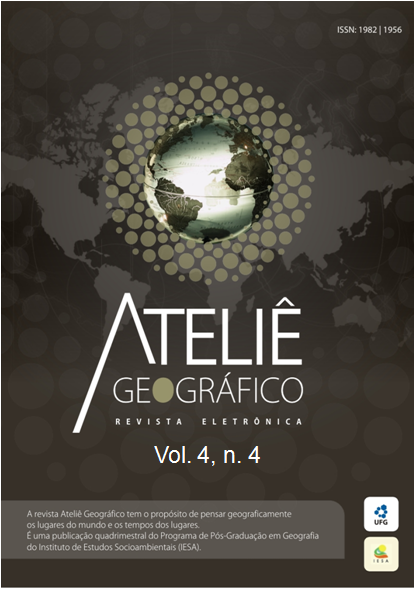Política de desenvolvimento, produção camponesa e os desafios da agroecologia - DOI 10.5216/ag.v4i12.12784
Résumé
O processo de modernização da agricultura intensificou a homogeneização dos padrões de produção em detrimento às características locais dos agricultores tradicionais. Isso levou a uma desagregação de valores simbólicos de reprodução social e cultural baseados no vínculo com a terra. A lógica tradicional de produção considerava que a função da terra era suprir as necessidades básicas de subsistência, em articulação com um excedente comercializável. Para o Estado, comprometido com o avanço do sistema capitalista, esses camponeses não possuíam relevância do ponto de vista econômico e necessitavam do incremento de novas técnicas para se inserirem no circuito mercantil, com o aumento da renda na unidade de produção e o consequente endividamento. Assim, ocorreram conflitos de representações entre duas lógicas distintas, que acarretaram graves consequências para o campesinato brasileiro. Nesse contexto, a agroecologia se apresenta como uma perspectiva teórica e uma estratégia alternativa de resistência do campesinato para continuar produzindo e vivendo no campo.
Téléchargements
Téléchargements
Publié-e
Comment citer
Numéro
Rubrique
Licence
Autores que publicam nesta revista concordam com os seguintes termos:- Autores mantém os direitos autorais e concedem à revista o direito de primeira publicação, com o trabalho simultaneamente licenciado sob a Licença Creative Commons Attribution que permite o compartilhamento do trabalho com reconhecimento da autoria e publicação inicial nesta revista.
- Os autores não serão remunerados pela publicação de trabalhos na Revista Ateliê Geográfico. Além disso, os conteúdos publicados são de inteira e exclusiva responsabilidade de seus autores, ainda que reservado aos editores o direito de proceder a ajustes textuais e de adequação às normas da publicação.
- Autores têm permissão e são estimulados a divulgar seu trabalho online (ex.: em repositórios institucionais ou na sua página pessoal), já que isso pode gerar alterações produtivas, bem como aumentar o impacto e a citação do trabalho publicado (Veja O Efeito do Acesso Livre).


